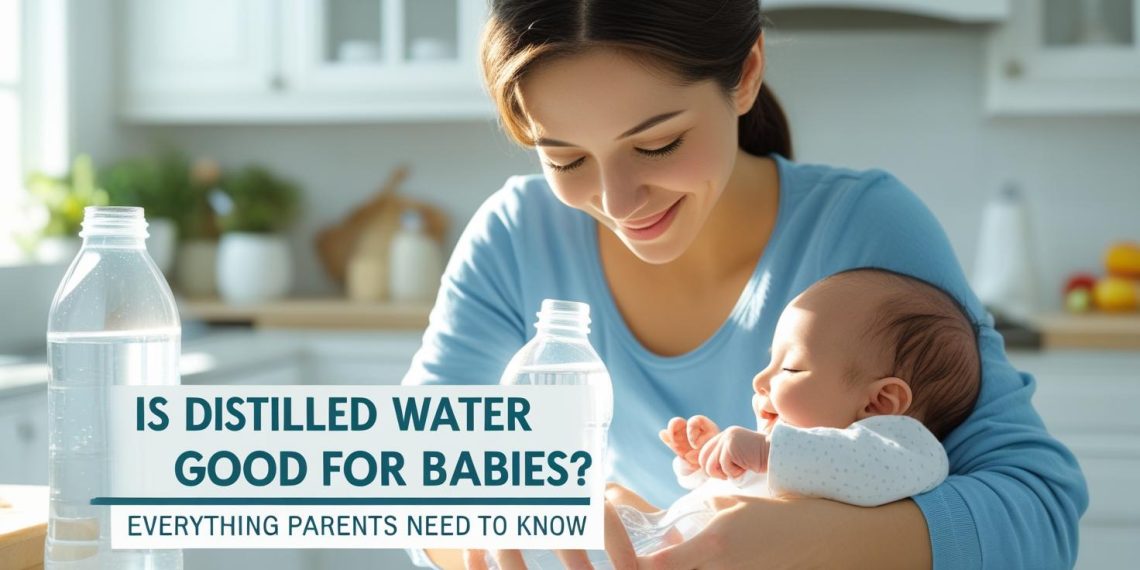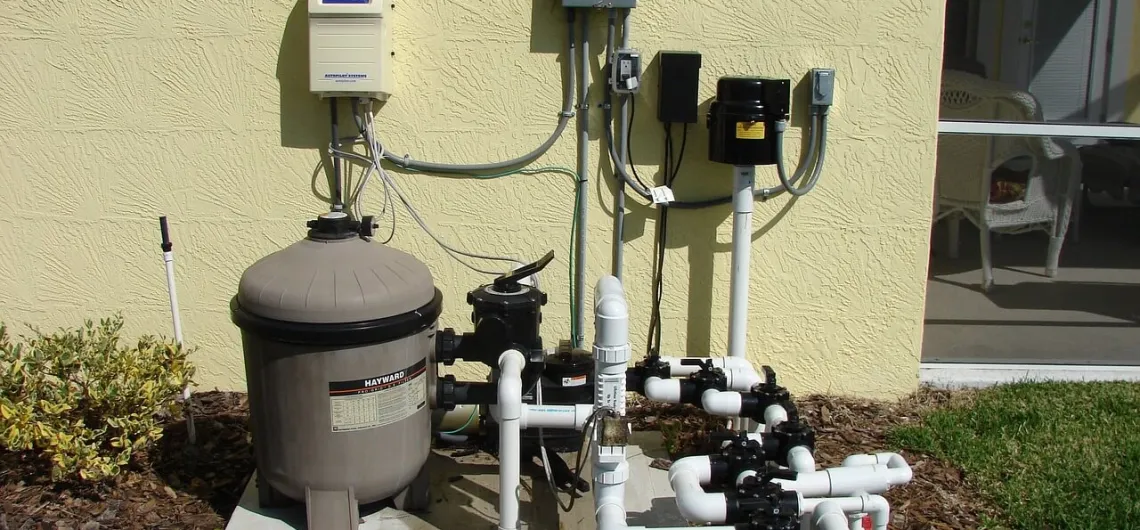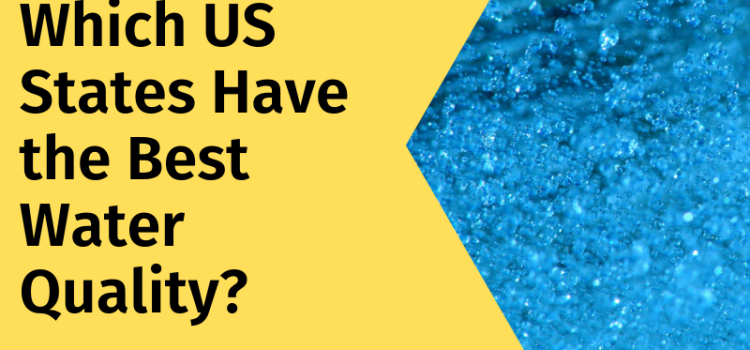Last updated on December 11th, 2025 at 06:09 pm
When it comes to your baby’s health, every choice matters — from the food they eat to the water they drink. Water may seem simple, but for infants, the quality and type of water can play a big role in their development and overall well-being. One question many parents ask is: Is distilled water good for babies?
In this detailed guide, we’ll explore what distilled water is, whether it’s safe for babies, the benefits and drawbacks, and how parents can ensure the cleanest and safest water for their little ones.
Understanding Distilled Water
Distilled water is water that has undergone the distillation process, where it is boiled into steam and then condensed back into liquid form, leaving behind impurities, minerals, and contaminants.
This method effectively removes:
-
Dissolved salts
-
Heavy metals
-
Chemicals like chlorine
-
Bacteria and viruses
-
Minerals such as calcium, magnesium, and fluoride
The result is pure H₂O, free from almost all contaminants. While that sounds ideal, the removal of minerals is where the debate begins — especially when it comes to infants.
Why Water Quality Matters for Babies
Babies’ bodies are still developing, and their immune systems are more vulnerable to harmful bacteria, chemicals, or excess minerals. Contaminated water can lead to:
-
Gastrointestinal issues
-
Weakened immunity
-
Delayed development (in extreme cases)
-
Toxic overload from substances like nitrates or lead
Additionally, babies don’t need plain water during the first six months (if exclusively breastfed), but water becomes important when formula feeding or after introducing solids. In formula preparation, the water source is just as important as the formula brand.
Is Distilled Water Safe for Babies?
The short answer: Yes, distilled water is generally safe for babies — especially when used to mix infant formula or as drinking water for toddlers.
Here’s why:
-
No harmful contaminants – Distillation removes bacteria, viruses, chemicals, and heavy metals that could harm your baby.
-
Ideal for formula mixing – Since it’s pure, it won’t interact with formula powder or change its nutritional content.
-
Reduces mineral overload – Infants’ kidneys are still developing, so water with high mineral content (like well water or untreated tap water) can put unnecessary stress on them.
Benefits of Using Distilled Water for Babies
1. Purity and Safety
Distilled water is one of the cleanest water types available, making it a safe choice for formula feeding. It eliminates the risk of microbial infections and chemical ingestion from tap or untreated water.
2. Prevents Waterborne Illness
Even “safe” tap water may contain low levels of contaminants. For babies, even small amounts of lead, nitrates, or bacteria can be dangerous. Distillation reduces these risks to nearly zero.
3. Gentle on Developing Organs
Infants’ kidneys and digestive systems are not designed to handle high mineral loads. Distilled water minimizes strain on these organs.
4. Consistency in Quality
Unlike tap water that can vary depending on location, season, or plumbing condition, distilled water provides a consistent level of purity.
Potential Drawbacks to Consider
While distilled water is safe, there are a few points to keep in mind:
1. Lack of Minerals
Distillation removes minerals like calcium and magnesium. While this is not harmful to babies (they get minerals from breastmilk or formula), some parents feel mineralized water is “healthier.”
Note: The American Dental Association (ADA) does recommend fluoride for developing teeth, so talk to your pediatrician if you’re exclusively using distilled water long-term.
2. Taste Differences
Distilled water has a “flat” taste compared to spring or filtered water due to the absence of minerals. Most babies won’t notice, but some toddlers might prefer water with a mild mineral taste.
When Should You Use Distilled Water for Babies?
1. Formula Preparation
Using distilled water ensures the formula is free from contaminants and won’t cause any unexpected reactions.
2. In Areas with Poor Water Quality
If your tap water is known to have high nitrate levels, lead contamination, or outdated plumbing, distilled water is a safer alternative.
3. While Traveling
In regions where water safety is questionable, distilled bottled water is the safest choice for baby feeding.
Distilled Water vs. Other Types of Water for Babies
| Water Type | Safety for Babies | Pros | Cons |
|---|---|---|---|
| Distilled Water | Yes | Pure, no contaminants, great for formula | No minerals, flat taste |
| Tap Water | Depends on quality | Cheap, convenient | May contain chlorine, lead, nitrates |
| Bottled Spring Water | Sometimes | Contains minerals | Not always regulated for infants |
| Well Water | No (without testing) | Natural source | Risk of high nitrates and bacteria |
| Filtered Water | Yes (if high quality) | Removes many contaminants, keeps minerals | Depends on filter quality |
Expert Recommendations
-
Under 6 months – Babies should get water only through breastmilk or formula. If using formula, distilled or high-quality filtered water is safest.
-
6–12 months – Small sips of water can be introduced, but formula/breastmilk should remain the main source of hydration.
-
12+ months – Babies can start drinking more water, but ensure it’s still clean and safe.
Always consult your pediatrician before making changes to your baby’s water source.
How to Store Distilled Water for Babies
-
Keep in a clean, sealed container.
-
Store at room temperature away from sunlight.
-
Avoid contamination by using a sterilized bottle for each pour.
-
Once opened, use within a few days if not refrigerated.
AMPAC USA Solutions for Pure Baby-Safe Water
While store-bought distilled water is convenient, producing pure water at home is safer, more cost-effective, and environmentally friendly. AMPAC USA offers advanced water purification systems that can give you distilled-quality water on demand.
Recommended AMPAC USA Systems for Baby-Safe Water:
-
6 Stage Reverse Osmosis System
-
Removes up to 99% of contaminants, including heavy metals, bacteria, and chlorine.
-
Ideal for preparing baby formula and drinking water.
-
-
Countertop RO Water Filter
-
Easy to install and perfect for apartments or small spaces.
-
Produces pure, safe water for daily baby needs.
-
-
Whole House Water Purification System
-
Ensures every tap in your home delivers safe water.
-
Protects your family from harmful contaminants in bathing and drinking water.
-
-
Commercial-Grade Water Distillers
-
For those who want true distilled water production at home.
-
Provides consistent quality and peace of mind.
-
Final Thoughts
So, is distilled water good for babies?
Yes — it’s one of the safest choices for formula preparation and baby hydration, especially in areas with questionable water quality. While it lacks minerals, infants receive their nutrients from breastmilk or formula, making distilled water an excellent choice for purity and safety.
With solutions like AMPAC USA’s advanced filtration and distillation systems, you can ensure your baby gets clean, contaminant-free water every day without relying on store-bought bottles.
Your baby’s health is worth the investment in pure water.
Ready to protect your little one with the purest water possible?
Explore AMPAC USA’s Baby-Safe Water Filters Here










